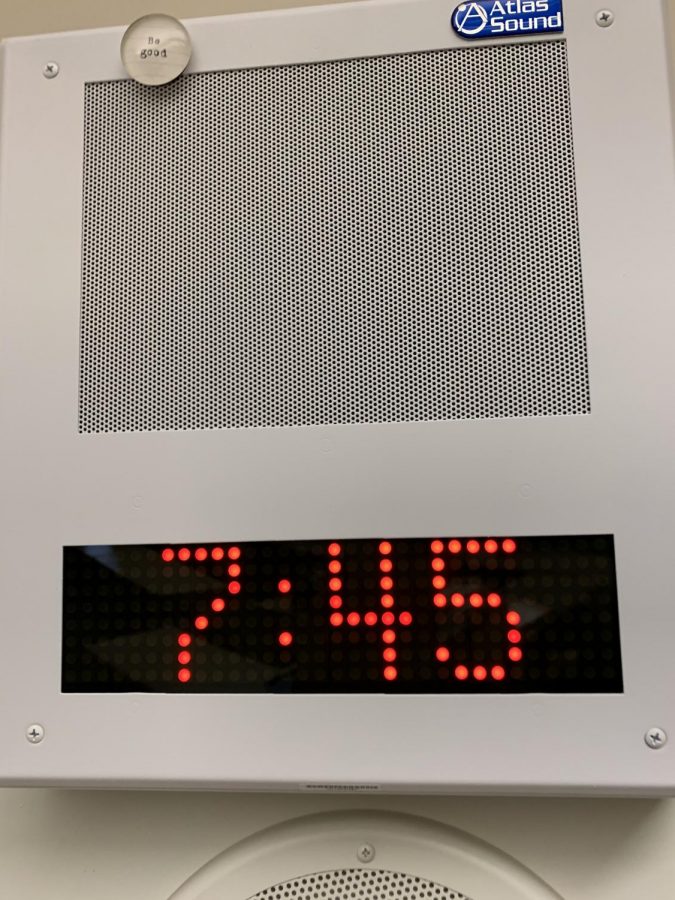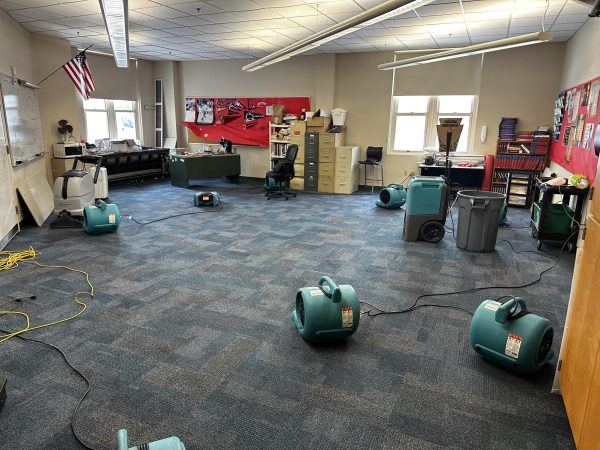Does a Delayed Start to School Really Benefit Students?
January 23, 2020
In recent years there have been many studies done to either prove or go against the point that a delayed start to school will benefit students’ learning habits. American Academy of Sleep Medicine reports that middle and high school shouldn’t start earlier than 8:30. Starting school earlier prevents kids from getting a full night’s sleep. “That’s partially because as children approach and go through puberty, their brains begin producing the sleep-inducing hormone melatonin on a delayed schedule, making it difficult for them to feel tired before 11 p.m,” stated in a report by American Academy of Sleep Medicine.
Data has been collected from both sides of this argument, resulting in multiple schools either setting a delayed start or never even bringing the idea to the school. Seattle public schools started the delayed start in September and doctors say that it has only had a positive outcome. The 34-min delay that Seattle put in place has shown a 4.5 percent increase in median grades and an overall improvement in attendance. A delayed start of an hour can allow teens to have more time for their homework when coming home late after school activities.
In addition to that, teens may break the habit of relying on caffeine to get them through the day. Scientists have found that 73% of high school students consume caffeine daily. With a later start to school, students will be less likely to depend on caffeine for the 7 hour day ahead of them.
Another study shows that at least 20% of high school students fall asleep during class each day. This will eventually lead to issues academically. With more sleep and time students will be more alert throughout their day.
Although many statements have supported the argument for a delay in school start times, there have been some opposing thoughts. While delaying school sounds like a phenomenal idea, it will most likely impact after school activities for all of the district. As it is believed that having a delayed start for students will increase their amount of sleep, that may not work as well as planned. Once students know they don’t have to be awake for an hour later than usual they may stay up later at night. The pros do outweigh the cons in this situation, but it is very important to consider all sides to ensure the district will be making the right decision.
We wanted to get insight into what Ipswich High School believed was the right decision in this situation, as well as see if it will ever become a possibility in the future. Therefore we spoke with one sophomore, one senior, and our Principal, Jonathan Mitchell.
¨This is a good idea; however, I think all the students would be pushing everything later on. Like they would be going to bed later if we start school later. Having students stay on top of their work, and not fall behind will help them get more sleep because they won’t be up studying” -a student from the senior class
“I think a later opening would help some kids, but many would end up just staying up later at night realizing that they could just sleep longer in the morning. I’m sure we could start at 10:00 and we’d still have kids coming in late to school. I’ve seen the research about circadian rhythms and believe there’s truth to the idea that teen’s sleep patterns are different, but the idea of pushing starting times later just isn’t really practical when you consider after school activities, jobs, etc. Boston tried to do it and it blew up in the superintendent’s face and the debacle ended up costing him his job.” – Mr. Mitchell
After asking a sophomore some questions, we got an insight into how the time now truly affects students. When asked how they felt in the morning at school they responded, “I feel tired and drained and can’t focus. I stay up late doing homework and end up not getting enough sleep.” The student proceeded to talk about how a late start could benefit students: “If school started an hour later, then students would get more sleep and attendance would probably be better because people won’t feel as drained getting up. I usually go to bed at 11:30 and wake up at 7:20, trying to get as much sleep in and giving me little time to get ready. I usually get around 7-8 hours of sleep.”
Studies show that an average teen needs exactly 9 and ¼ hours of sleep each night. Many students have homework and partake in after school activities, making it hard for them to fall asleep at a reasonable time to accommodate the hours they need. Without the amount of sleep, they need this can take a toll on mood, behavior, academic performance, and cognitive ability. A later start could also reduce the anxiety of waking up so early to get ready, and for some who take a bus have to get up earlier than others who get a ride. Delaying the start of school may not solve every teenager’s issues in school, but could certainly help.






